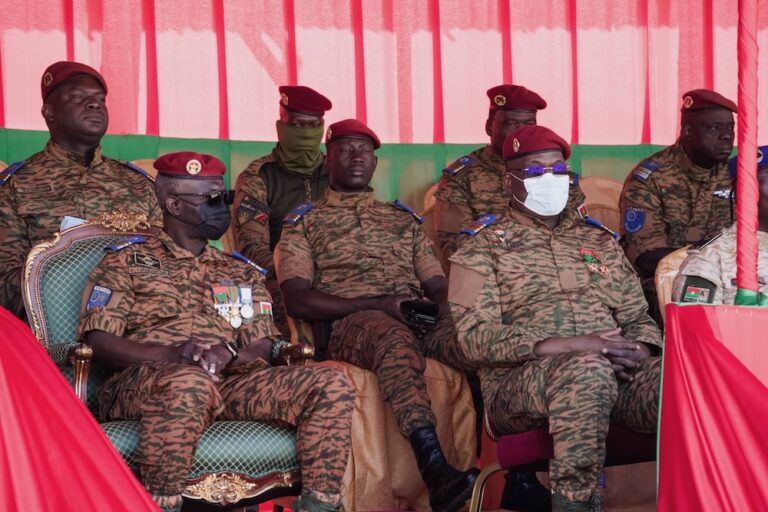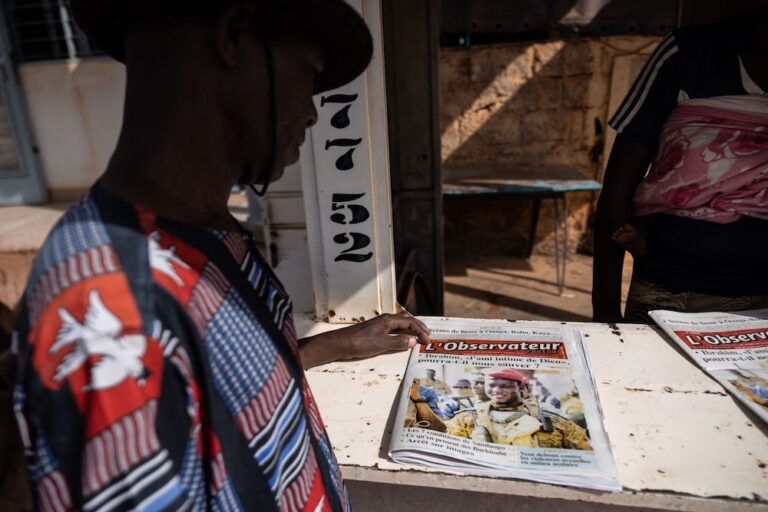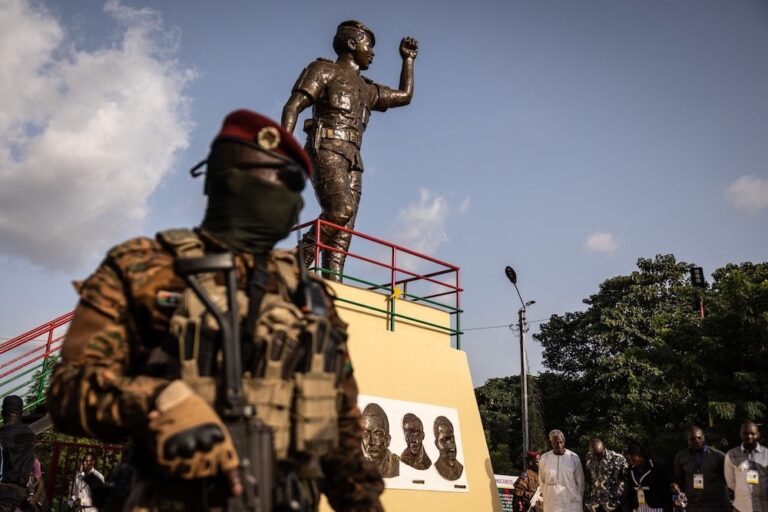During the military takeover in Burkina Faso, journalists Henry Wilkins and Sam Mednick were briefly detained, while local journalist Ibrahim Compaoré was badly injured during protests.
This statement was originally published on cpj.org on 25 January 2022.
Authorities in Burkina Faso should ensure that journalists can report freely, safely, and without fear of arrest, the Committee to Protect Journalists said Tuesday.
On Sunday, soldiers at the Sangoule Lamizana military camp outside Ouagadougou, the capital, briefly held freelance reporter Henry Wilkins and Associated Press reporter Sam Mednick, according to both journalists, who spoke to CPJ via messaging app, and Wilkins’ comments on Twitter and to the BBC.
The journalists were photographing and filming the camp when some soldiers aimed their guns at them and others fired into the air. The soldiers confiscated their equipment, took them inside the base, and then released them and returned their equipment, according to Wilkins and Mednick, who said that the incident lasted about 30 minutes.
On Monday, members of the military announced on state broadcaster RTB that they had suspended the constitution, disbanded the government, and closed the country’s borders.
“People in Burkina Faso and around the world are only able to know what is happening in the country if journalists are permitted to do their jobs without fear of arrest or harassment,” said Angela Quintal, CPJ’s Africa program coordinator. “Attacks on the press are never justified, and authorities should maintain internet access and ensure reporters can work safely and distribute the news without fear.”
Separately, Ibrahim Compaoré, a reporter with the local La Chaîne au Coeur de l’Afrique (LCA) broadcaster, was struck in the arm by a teargas canister while filming protests on January 22, according to the journalist, who spoke to CPJ over the phone, a post on LCA’s Facebook page, and local media reports. Compaoré told CPJ that the canister broke his left arm and he had received medical attention.
The same day Wilkins and Mednick were held, local and international media and the digital rights group Access Now reported internet disruptions in the country, following similar disruptions in early January and in November 2021.
A journalist working in Ouagadougou, who asked to remain anonymous due to security concerns, told CPJ via messaging app Monday that angry mobs have harassed and chased journalists to prevent them from recording events on the street.
“As soon as you step out with a camera mobs will form,” the journalist said. “Local journalist[s] and foreign alike… People will start chasing you, with sticks. One guy was about [to] throw a rock at me today.”
CPJ was unable to immediately determine authorities to contact for comment on events surrounding the coup.
Reached via messaging app, Guy Hervé Yé, director of communication and public relations of the Burkina Faso gendarmerie, told CPJ he was not aware of the specific circumstances involving Compaoré’s case, but said that journalists filming demonstrations were at risk of teargas being deployed to disperse crowds.
He said journalists should remain farther back from protests to avoid being caught between security forces and demonstrators.
Previously, in April 2021, Spanish journalists David Beriain and Roberto Fraile were abducted in eastern Burkina Faso and killed. In late November 2021, security forces and protesters also attacked and harassed journalists working to cover demonstrations over insecurity and calling for a change in national leadership, according to a statement of condemnation by the Association of Journalists of Burkina Faso.
Journalists in Burkina Faso can consult CPJ’s safety tips on reporting amid civil disorder and internet disruptions.



